The Asheville City Council will have at least one new face after the 2024 election. Incumbents Sage Turner and Kim Roney are seeking reelection, but Vice Mayor Sandra Kilgore is not.
In total, eight candidates are running for those three seats in the primary election, and voters will be able to vote for only three. While Roney and Turner are using their current work on Council as the foundation of their campaigns, candidates Iindia Pearson and Tod Leaven plan to use their military experience to find solutions to some of the community’s most pressing issues.
Kevan Frazier, owner of Well Played Board Game Café, prioritizes developing a safe and inclusive community and plans to collaborate with local nonprofits and organizations to bring in more affordable housing and better support the unhoused. Candidate Bo Hess says he will use his background as a social worker and a mental health clinician to implement a “compassion with action” model for addressing public safety. Candidate Charles “CJ” Domingo says he plans to focus on investing more into public safety and increasing staff at the Asheville Police Department.
Candidate Taylon Breeden did not respond to Xpress’ request to participate in the voter guide.
The number of candidates who go on to the general election is twice the number of open seats, so the top six voter-getters will advance to the general election. Council elections are nonpartisan.
Charles “CJ” Domingo
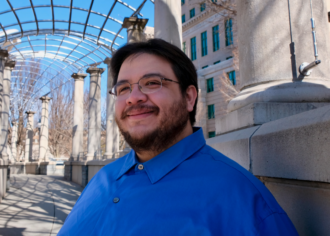
Website: cj4avl.com
Occupation: Operations supervisor, Securitas Loomis
Previous office held: N/A
How do you differentiate yourself from the other seven candidates?
I’ve almost certainly spent more time on the ground cleaning up the waste and garbage of the unhoused crisis than any other candidate. When I worked for the city, I oversaw weekend and event parking for Asheville’s public garages and lots, so I’ve also seen what a lack of transportation access means to visitors, residents and folks trying to go to work. I know firsthand that we cannot continue to ignore our problems, hoping for a perfect solution.
Bike lanes, sidewalks and greenways have been a big deal lately. Should the city prioritize multimodal transportation?
As a part of a larger plan to address how people access and enjoy our unique mountain home, yes, absolutely. However, we must avoid building just to show that we did “something.” If a project is to be prioritized, it should be a responsible use of public funds that will improve access and/or quality of life for our residents.
Public safety has been an issue in Asheville. How should the city and APD approach it?
Public safety is the cornerstone of the people’s trust in government and our laws and law enforcement must reflect that. According to Interim Chief Mike Lamb’s Jan. 25 interview with Asheville Citizen-Times, APD’s vacancies are behind the reduction in services offered to the public. We must attract and invest in more officers. Civilian Traffic Enforcers and Community Responders are good stop-gap measures, but not a complete solution. Enhanced community policing, a modernized community watch initiative and shrewd deployment of existing resources could help to restore the public’s trust.
What should the city’s primary approach be for affordable housing?
We must ensure that we are enticing the creation of affordable housing. Our zoning must be updated to encourage higher density developments, especially in locations close to downtown and areas with strong transit coverage. Meanwhile, we must enforce our rules against short-term rentals. I’d anticipate that public-private partnerships could help to expand our options while allowing the city to exercise more oversight during construction.
How should the City of Asheville address homelessness?
The city’s approach should be compassionate and pragmatic. We should prioritize programs that encourage self-sufficiency while protecting public safety. The Continuum of Care model touted by HUD provides a framework that can be adapted for localized success. A crucial part of that success would likely involve calling upon and collaborating with local community groups that want to help, such as nonprofits and faith-based organizations.
Kevan Frazier

Website: kevan4avl.com
Occupation: Owner of Well Played Games; executive director of community partnerships, Western Carolina University.
Previous office held: N/A
How do you differentiate yourself from the other seven candidates?
Folks want to be part of a community they feel has their back. That’s the community that I want us to build. It’s what I’m drawn to naturally as an educator, business owner, advocate and native. I’m the executive director of Western Carolina University’s programs at Biltmore Park. It’s rewarding. I help people achieve for themselves and help attract high-paying jobs that support families. I’m an owner of Well Played Board Game Café and volunteer as an LGBTQ+ business adviser. At the end of each day, ensuring every neighbor feels heard, respected and served by the City Council is my goal.
Bike lanes, sidewalks and greenways have been a big deal lately. Should the city prioritize multimodal transportation?
Support for multimodal transportation is actually very old-school. We had more multimodal options in Asheville 100 years ago than we do today. There’s no one-size-fits-all solution to transportation. Depending on why, where and when, the method that folks need to use for transportation will change. That’s why multimodal transportation is a necessity, not a novelty. Providing multimodal transportation, including mass transit, is a fundamental function of city government and a priority. Bike lanes, sidewalks and greenways are necessary infrastructure for any great city, and they create accessibility for our youngest, oldest, disabled and underresourced neighbors.
Public safety has been an issue in Asheville. How should the city and APD approach it?
The City Council’s principal role in public safety is to ensure that there is a well-trained and adequately staffed police force to serve our community. At present, we are understaffed. Recruitment that includes highly competitive compensation packages must be a priority. The community responder program that ensures that the right professionals (medical, peer support, police) are sent on each call is an incredible collaborative program that should continue. I am also excited about the recently announced partnership between the APD and the Buncombe County Sheriff’s Department and would like to see these kinds of collaborations become the norm.
What should the city’s primary approach be for affordable housing?
The lack of affordable housing in Asheville is directly tied to the very low inventory of houses and apartments. Hand-in-hand with that is requiring builders to provide units at 30%-50% of the area median income, in addition to some at 60%-80%. To increase inventory, the city needs to remove all barriers to thoughtful and responsible housing development for rentals and homeownership. As a small-business owner, I’ve experienced firsthand the stumbling blocks present in our current systems that make it difficult and expensive to open a new business, and the same holds true for developing thoughtful, responsible housing.
How should the City of Asheville address homelessness?
The city should continue and fully realize the Continuum of Care model (CoC) because it leverages collaboration and centers the people who are in need. It brings together city and county government and nonprofit organizations to help our unhoused neighbors. The CoC model will make the system much easier for people to navigate. The city also needs to continue to pursue partnerships to provide more shelters and permanent housing. The city cannot solve homelessness, but it can support the agencies who can do this work best. Also, our community collaboration during Code Purple events is a lifesaving stopgap effort that should continue.
Bo Hess

Website: electbohess.com
Occupation: Clinical social worker, Western North Carolina Therapy and Consulting
Previous office held: N/A
How do you differentiate yourself from the other seven candidates?
I am a social worker, meaning that I have pledged my life to the service of humanity and social justice. My background as a social worker, mental health clinician, community advocate, addiction specialist, law enforcement trainer and professor at WCU equips me with expertise into Asheville’s critical social issues. I am the only candidate with profound insight into mental illness, crime and homelessness. These issues demand more than our attention. Electing me means choosing an experienced leader ready to bring effective solutions that will enhance the well-being of our city.
Bike lanes, sidewalks and greenways have been a big deal lately. Should the city prioritize multimodal transportation?
Yes, Asheville should prioritize enhancing multimodal transportation. This commitment not only preserves our cherished green spaces but also fosters connectivity and inclusivity across neighborhoods. As a mental health professional, I recognize loneliness as a critical public health issue. As a social worker, I recognize the value of having walkable communities. By developing safe, accessible walkways and greenways, we promote economic opportunity and enrich the social fabric of our city. Multimodal transportation is vital in promoting a sense of community and well-being among all Asheville residents. My focus is on creating a more interconnected, healthier Asheville that everyone can access.
Public safety has been an issue in Asheville. How should the city and APD approach it?
Public safety is the cornerstone of a flourishing Asheville, where every resident feels secure to live, work and enjoy life. My approach combines compassion with action. By boosting outreach programs staffed with dedicated professionals (social workers/mental health experts), we can directly address challenges. True public safety considers the dignity and empowerment of our vulnerable. By focusing on restorative justice, the city can repair community relationships with police, experience I bring from my career. Our community needs public safety infrastructure to weave together a more resilient community fabric. Electing me means electing a proactive, humane approach to public safety.
What should the city’s primary approach be for affordable housing?
The key to Asheville’s affordable housing challenge is increasing diverse housing options — apartments, studios, work/live spaces, tiny-home villages and transitional shelters. Utilizing our city housing fund, we must increase the building of affordable units. Collaborations with local nonprofits and the support of community land trusts can offer stability for all residents. Additionally, housing and rent subsidies can be reassessed through current data and increased as needed. Through Council, we can streamline regulations and review zoning ordinances to facilitate the development of affordable housing. As a leader, I will bring together stakeholders to improve access to and scope of affordable housing.
How should the City of Asheville address homelessness?
Increasing diverse housing options is crucial. A coordinated entry system is essential in connecting those experiencing homelessness with services/transitional housing. Enhancing community safety and treating our most vulnerable with compassion is imperative. We should expand community paramedic programs, peer support and outreach services. Investing in wraparound services, including mental health, addiction treatment and job training will help individuals transition to stable, permanent housing. Innovative work programs could offer city employment on a daily basis, engaging in jobs like graffiti removal, park maintenance or assisting community events. The city should be engaged in creating pragmatic solutions to a complex issue.
Tod Leaven
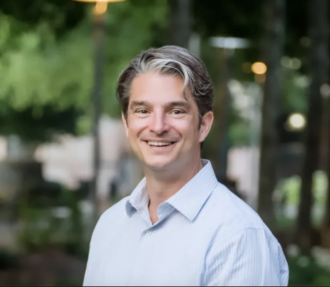
Website: todleaven4asheville.com
Occupation: Partner/attorney, Leaven Law Firm PLLC
Previous office held: N/A
How do you differentiate yourself from the other seven candidates?
I first moved to Asheville in 1985. I am a lawyer with land-use experience. I am a Democrat but will respect, talk to and work with everyone — Republicans, Democrats, independents, etc. I have a profound appreciation for our current unhoused crisis, as my twin sister died on the streets of Asheville, being unhoused for years. I am a combat veteran of the U.S. Army, so I know the importance of teamwork and being solution-minded as opposed to being blame-centric. I am a small-business owner.
Bike lanes, sidewalks and greenways have been a big deal lately. Should the city prioritize multimodal transportation?
Yes, the city should prioritize all forms of transportation. Most people do not bike to Asheville from Raleigh, so we cannot ignore cars. Bikes and cars can both “win.” However, bikes, walking, etc., are important to our health, sustainability and city longevity. If we could build more affordable housing, the higher concentrated population would naturally support multimodal transportation.
Public safety has been an issue in Asheville. How should the city and APD approach it?
The city should pay its police officers significantly more money. It is good that people feel they can support the police more openly now, but our police are terribly underpaid. Our police cannot afford to live in the city they serve and often can be viewed as outsiders, both politically and physically. This is a shame. We need to build more affordable housing so those who protect us are actually our neighbors.
What should the city’s primary approach be for affordable housing?
Build more affordable housing. Simplify the [Unified Development Ordinance]. We need to develop sustainably and with equity, but we need to develop. We need to build more affordable housing. It is terrible that those who work in our city cannot afford to live in our city.
How should the City of Asheville address homelessness?
Build more affordable housing. The city is doing a better and better job in addressing those whom are already in an unhoused crisis, and this should not be ignored, but the city is doing a terrible job in addressing the causes of homelessness. We absolutely need to build more affordable housing.
Iindia Pearson
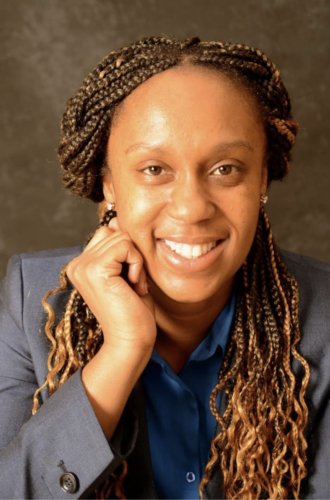
Website: avl.mx/dcm
Occupation: Owner of Miss P’s Cateringz and Delicious Dogz, contract bookkeeper
Previous office held: N/A
How do you differentiate yourself from the other seven candidates?
I don’t compare myself to the other candidates. I ask myself how and where can I contribute to the current Council and city as a whole. I have a plethora of experience that includes working in the public school system, working with those living in low-wealth communities, finance and bookkeeping, entrepreneurship, community advocacy, while having a military background as a mother of five, working with school-age children.
Bike lanes, sidewalks and greenways have been a big deal lately. Should the city prioritize multimodal transportation?
Absolutely, it’s not always convenient or possible to ride the transit or afford to catch an Uber or cab. Bike lanes, sidewalks and greenways are a necessity for those on feet, bikes or otherwise. This contributes to community and public safety.
Public safety has been an issue in Asheville. How should the city and APD approach it?
This should be a communitywide approach. It will take community policing by those in the community and APD to use a community approach while the city supports these efforts.
What should the city’s primary approach be for affordable housing?
We should be setting a high standard for developers wanting to build, such as a request to accept a percentage of Housing Choice Vouchers and investing in local business and organizations for homeownership programs for those making under the AMI [area median income] and/or living wage.
How should the City of Asheville address homelessness?
We address this with the homeless population and those organizations that represent that population. They both need to be at the table to strategize and develop a plan that will work.
Kim Roney
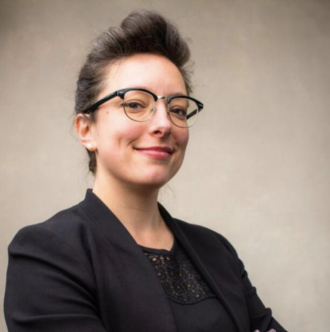
Website: kimroney4asheville.com
Occupation: Music educator
Previous office held: Asheville City Council member since 2020
How do you differentiate yourself from the other seven candidates?
As a current Council member, I’m dedicated to representing working, poor and compassionate people, and to demanding accountability as unchecked tourism extracts our resources and burdens our infrastructure. I have the courage to say no — and the consistent leadership to say yes to: initiating urban forestry programming; protecting neighborhoods from hotel encroachment; identifying funds for deeply affordable housing, expanded transit and reparations; insisting on fair water rates to keep our water on; protecting renters, veterans, LGBTQ+ residents and reproductive rights; ending the behind-the-scenes check-in meetings; and pressing for living wages for city staff who provide the services our community deserves.
Bike lanes, sidewalks and greenways have been a big deal lately. Should the city prioritize multimodal transportation?
Owning a vehicle shouldn’t be a prerequisite for getting to work, shopping or school. We’ve been at the top of the list for most dangerous roads per capita in the state for over a decade; we must prioritize roads designed for everyone to get to their destination safely. Complete streets are good for the people who live and work here, for businesses and for meeting our carbon reduction goals. I am committed to budgets, plans and policies that make our roads safer for all commuters, including cyclists, pedestrians and drivers, and ADA [Americans with Disabilities Act] compliance to improve safety and accessibility for all.
Public safety has been an issue in Asheville. How should the city and APD approach it?
Everyone in Asheville deserves to be safe, but a narrow definition of public safety limits successes and creates new problems.True public safety identifies needs and utilizes correct tools. Sending the right person with the right tools and training during crises isn’t some far-off dream. We should partner to expand Buncombe’s Community Paramedicine program with staff uniquely qualified to connect people with behavioral health care and substance use treatment; bring Durham’s HEART program to Asheville; engage community health workers for violence interrupter programming; and regain our living wage certification so first responders can afford to live in the communities they serve.
What should the city’s primary approach be for affordable housing?
Housing is too expensive, and so are costs of transportation and utilities. Asheville should initiate a community benefits table for housing development that incentivizes deeply affordable housing for people who live and work in Asheville. Those benefits should bolster neighborhood plans and prioritize housing development on infrastructure corridors close to jobs and grocery stores, increase transit frequency so people can spend more time at home with their families instead of buying another car, and keep utility costs in check, which is why I’ve set the standard in calling for renewable energy options in every new residential development.
How should the City of Asheville address homelessness?
The city is responsible for the safety of everyone in our community, regardless of economic or housing status. How we relate to neighbors experiencing homelessness is fundamental to improving communitywide quality of life. Reducing homelessness means mitigating crises effectively, removing barriers to shelter, getting and keeping people housed, and providing services centering on people with lived experience. As Council liaison to the Homeless Initiative Advisory Committee, I’m committed to the recommendations in the National Alliance to End Homelessness report and invite readers to join the new Continuum of Care as we implement recommendations to reduce homelessness in our community by 50%.
Sage Turner
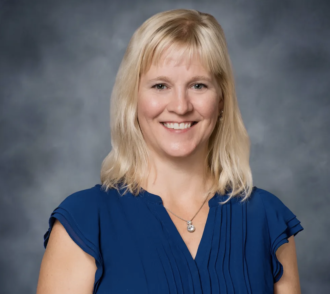
Website: sageforasheville.com
Occupation: Finance and project manager, French Broad Food Co-Op
Previous office held: Asheville City Council member since 2020
How do you differentiate yourself from the other seven candidates?
As an incumbent, I bring experience, including 10 years of affordable housing expertise and leadership for the city and four years with the county, where I oversaw [administration] of federal funds, housing projects, policies, grants and zoning. Additionally, I have decades of board service, including recruiting, hiring and managing numerous directors. I have lived as an Asheville resident for over 20 years. I raised my family here and have focused on community development and city activities just as long. I work downtown as a finance and project manager, I live in West Asheville and have a master’s degree in city planning.
Bike lanes, sidewalks and greenways have been a big deal lately. Should the city prioritize multimodal transportation?
Yes. The average resident spends 25% of their income on transportation. Half of our community is also cost burdened, meaning they spend more than 30% of their income on housing. Layer in the environmental damages of long commutes, traffic, noise and emissions, and all signs point to improving options for other modes of transportation.
Public safety has been an issue in Asheville. How should the city and APD approach it?
Public safety is evolving and will continue to evolve. First responder jobs are harder, the needs are greater, more diverse, and resources struggle to keep up. Staffing is down across the nation, and other economic issues like housing costs add additional strain on our local recruitment. Our best strategies are to continue efforts to restaff, focus on retention, lateral hires of experienced officers, new recruits, new technology, diversion and partnerships with the county, community responders and regional agencies.
What should the city’s primary approach be for affordable housing?
Produce, preserve, diversify and focus. We need more homes. We also have a quality of life to preserve, with neighborhoods growing quicker than their infrastructure and ownership becoming harder to achieve. Growth is inevitable. We have a responsibility to focus growth along existing infrastructure, near transportation options, jobs and amenities. If we want to protect neighborhoods, we will upzone all major corridors and let them be developed. If we want to grow ownership, we will need to diversify our housing types, including townhomes, courtyards, ADUs [accessory dwelling units], duplexes and more. If we want to preserve existing affordable units, we will need to grow repair programs and funding.
How should the City of Asheville address homelessness?
Our focus is on making homelessness rare, brief, and nonrecurring. Asheville-area nonprofits, service agencies and organizations have tremendous capacity to help those in need, whether it is housing, temporary crises, mental health-related, domestic violence or addiction. In recent years, we’ve learned we need systemwide strategies for organizing and teaming up with these agencies to isolate gaps in the Continuum of Care. We also need to understand our capacity; we do have limits. We need more permanent supportive housing, more rapid rehousing options, more preventive efforts and a much larger effort and funding from the state and federal governments.


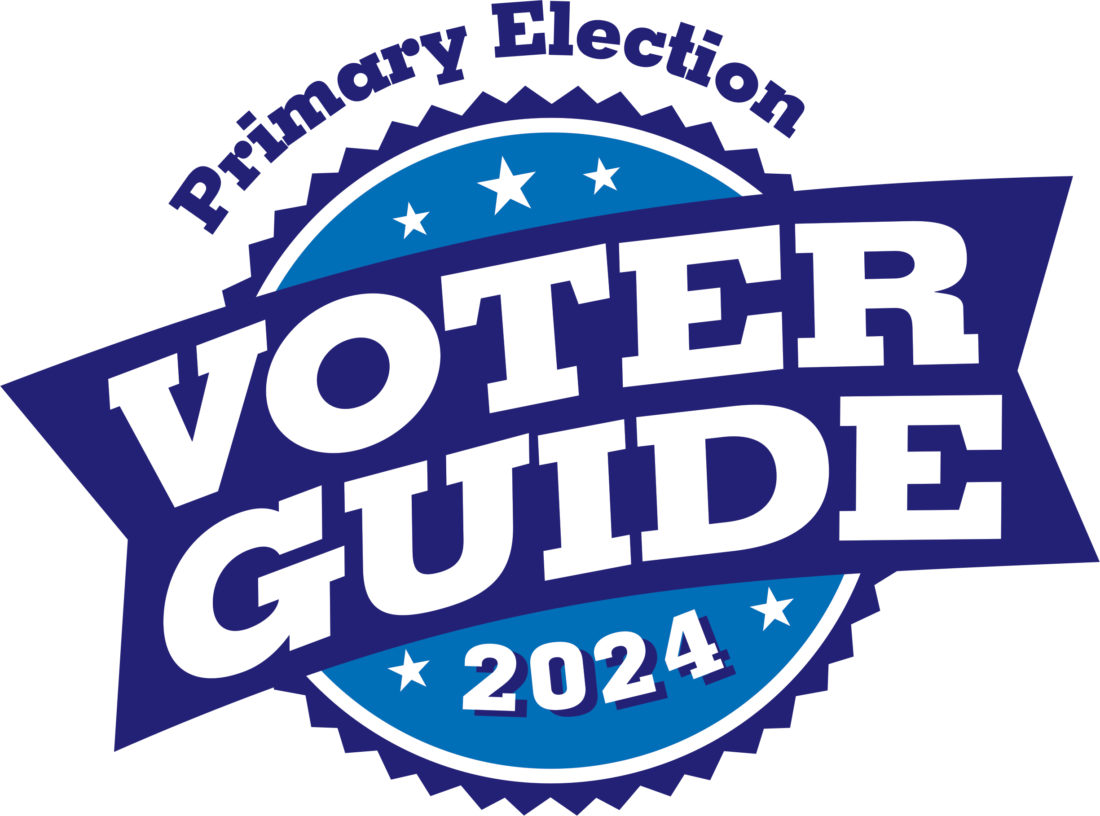


Before you comment
The comments section is here to provide a platform for civil dialogue on the issues we face together as a local community. Xpress is committed to offering this platform for all voices, but when the tone of the discussion gets nasty or strays off topic, we believe many people choose not to participate. Xpress editors are determined to moderate comments to ensure a constructive interchange is maintained. All comments judged not to be in keeping with the spirit of civil discourse will be removed and repeat violators will be banned. See here for our terms of service. Thank you for being part of this effort to promote respectful discussion.